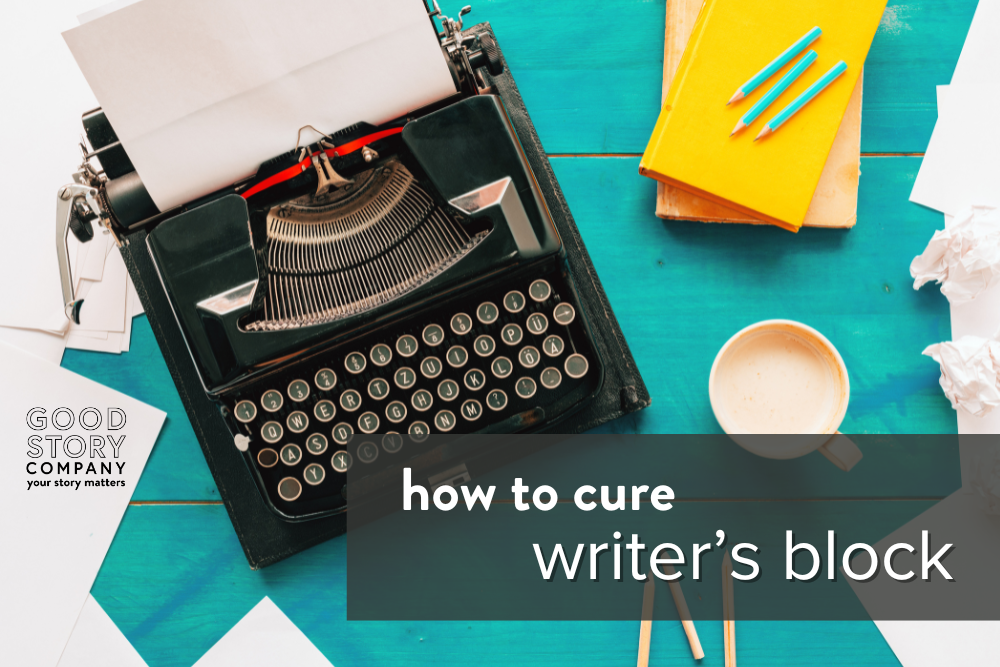How to Cure Writer's Block
Regardless of who I’m talking to—an audience of kid readers, a group of teachers at a workshop, or even peers curious about my writing career, the most common question I receive is: how to cure writer’s block. The problem with this question, however, is that it is often too broad. “Writer’s block” can mean many different things, and one writer asking how to cure writer’s block can mean something dramatically different than another writer asking the same thing.
So what does writer’s block mean? When does it happen? And how can you cure it?
“Writer’s block” can mean many different things, and one writer asking how to cure writer’s block can mean something dramatically different than another writer asking the same thing.
You never know what you’re going to need when you’re writing. Maybe you’ve run into a problem with your plot. Maybe you could use some inspiration. Maybe you have a draft and don’t know what to do next. We’ve been there, and we have you covered.
How to Cure Writer’s Block: A Story Block
Sometimes, it can honestly feel like you don’t know what will happen next in your story. Your character may get to a certain point and you just…don’t…know…what…he…should…do. The words seem stuck in your brain and pulling them out is like digging through quicksand. While some people think this is the most frustrating type of writer’s block, for me, this is usually the easiest, because I know that when I am at this point, I am still motivated to write. I still want to know what the character is going to do, even if I can’t figure it out or solve my problems quite yet.
Often, during this struggle, I eventually discover that the reason I can’t nail down what’s going to happen is because my story is, to put it simply, boring. At some point previously in the narrative, my character got off track. So off track that all the paths in front of them feel impossible to follow. Therefore, it usually helps me to backtrack, to retrace my steps in the book, whether it’s a few paragraphs or a few chapters backwards, to a point where the action starts to feel exciting again.
Is there a place where you can send the character off on a different journey? If there was a fork in the road, maybe they can choose the other fork—or create a new fork entirely. Throw in a dragon or two, an obstacle for the character to overcome. When all else fails, make things more difficult. That will liven up the action for sure!
Do you know your characters or your plot well enough? Sometimes writer’s block can occur when your don’t know who or what you’re writing about. Taking some time to plot or to explore your characters can help give you a road map to follow.
How to Cure Writer’s Block: An Emotional Block
An emotional block is the other main type of writer’s block. Sometimes, when writing gets difficult, it is because life gets in the way. Writer’s block can arise because of personal events or world-changing catastrophes that affect both concentration and creativity. When it feels like the world is falling apart around you, it can be hard to focus on your writing. When you’re juggling a job and a family and multiple other distractions, it is often hard to think of what your characters should do in a certain situation. When you are dealing with mental health issues, it can be seemingly impossible to dredge up the motivation to write.
There are two schools of thought here, and both are equally valid. Some believe that this is the time to be gentle with yourself. When emotional writer’s block arises, it is totally okay to take time away from your writing until you are in the headspace to give it your full concentration. You don’t have to be productive all the time, and it is okay to recharge your creative well until you are ready to produce again. Sometimes, rest can help you get more writing inspiration in the future.
Some also believe that it can be helpful to force yourself to write. Not in a bad way, but in a “set a time, get those words on the page, and don’t worry if they’re awful” way. As I’m sure you’ve heard before, the only thing you can’t fix is a blank page, and just starting yourself in the routine of writing can set you on the path of escaping your writer’s block.
However, it’s important to note that a blank page isn’t the end of the world. Writer’s block will end eventually, and whether you push yourself or not, you will ultimately find the strategy that works best for you.
Unlock your access to every educational resource we’ve ever made—for just $9 a month. It’s everything you need to take your writing to the next level.

